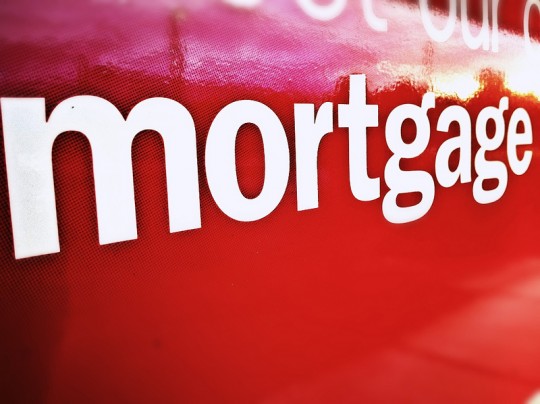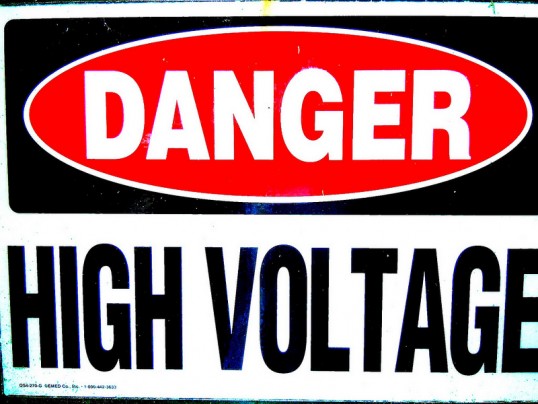According to the Mortgage Bankers Association’s Weekly Applications Survey, the average contract interest rate for 30-year fixed-rate mortgages fell last week, reaching the lowest point since June. The drop in rates was the second in as many weeks and kicked off a surge in demand for home loans. The Market Composite Index, which measures both purchase and refinance volume, was up 6.4 percent from one week earlier, due to a 9 percent increase in refinance demand and a 2 percent spike in purchase loan activity. The survey, which covers 75 percent of all U.S. residential mortgage applications, has been conducted weekly since 1990. More here.
Archive for October 2013
Survey Reveals How Americans Feel About Their Neighbors
Trulia recently conducted a survey of 3,014 American adults to gauge their feelings about their neighborhood and neighbors. The results reveal that a majority of Americans say they like their neighbors, though a smaller percentage say they know their neighbors’ names. Among respondents, homeowners were more likely to know and like their neighbors than renters, as were people in suburban neighborhoods compared to people in urban areas. One fifth of Americans said they judge their neighbors by the appearance of their home and property and 35 percent said it’s important to them that their neighbors are homeowners, not renters. Jed Kolko, Trulia’s chief economist, said because of the housing crash and foreclosure crisis, millions of single-family homes became rentals, which is bad news for homeowners who say it’s important they live near owners. But, according to Kolko, living next to a rental beats living next door to a foreclosed, vacant house. Regionally, Midwesterns were most likely to know their neighbors’ names: 60 percent said they do, compared with 51 percent in the Northeast and South, and 49 percent in the West. More here.
Pending Home Sales Fall 5.6%
The National Association of Realtors’ Pending Home Sales Index is a forward-looking indicator based on the number of contract signings each month. The Index doesn’t reflect closings but is a good indicator of future sales of previously owned homes. In September, the Index dropped 5.6 percent. It was the fourth consecutive month pending sales declined. Lawrence Yun, NAR’s chief economist, said concerns about the government shutdown played a role. According to Yun, declining housing affordability conditions combined with uncertainty caused by the looming shutdown were the likely cause of the reduced contract activity. But despite decreasing sales trends, existing-home sales will be 10 percent higher this year than 2012, reaching more than 5.1 million. Also, the NAR expects home prices to moderate next year after rising more than 11 percent this year. More here.
Housing Records Strong September Despite Challenges
According to the most recent Campbell/Inside Mortgage Finance Housing Pulse Tracking Survey, the housing market’s vital signs remained strong in September. The survey, which polls nearly 2,000 real-estate agents across the country each month, found that the recent dip in sales numbers was not caused by higher mortgage rates or any other obstacle to market health. Thomas Popik, research director for the Housing Pulse survey, said the emerging slowdown in home purchases appears to be largely seasonal. According to Popik, September’s results show it was another month where higher rates had only a moderate effect on the market overall. Also in the release, the housing market was found to have performed quite well in September, despite the continuing decline in homebuyer traffic among current homeowners, first-time buyers, and investors. The survey found time on market was at a four-year low, homes are selling for a higher percentage of their list price and distressed property sales have fallen, all indicators of improved market conditions. More here and here.
Americans’ Confidence Rebounds Following Fiscal Deal
Recently shaken by the government shutdown and debt ceiling negotiations, Americans’ confidence in the economy has already begun to rebound after lawmakers reached a deal to avoid defaulting on the nation’s debt. According to Gallup’s most recent Economic Confidence Index, Americans responded positively to news that the shutdown had ended, leading to the first improvement in economic confidence since September 15. But despite the gains, 69 percent of Americans still say the economy is getting worse while just 27 percent say it’s getting better. And the index, though improved, is still significantly lower than it was in May and early June when it peaked for the year. Overall, Americans’ perception of where the economy is headed was damaged by nearly a month’s worth of economic uncertainty but appears to have rebounded quickly. More here.
Mortgage Rates Hit Four-Month Low
According to the Mortgage Bankers Association’s Weekly Applications Survey, demand for mortgage loans held steady last week from the week before. Total mortgage application volume was virtually unchanged, declining just 0.6 percent from the previous week. The week’s results don’t include an adjustment for the Columbus Day holiday but, on an unadjusted basis, refinance activity fell 1 percent while purchase-loan demand rose an equal amount. Also in the report, average mortgage rates hit their lowest point since June 2013, falling again last week. Despite the drop, the refinance share of total mortgage activity decreased to 65 percent, from 66 percent the week before. The MBA’s weekly survey covers more than 75 percent of all U.S. residential mortgage applications and has been conducted since 1990. More here.
Housing Market Expected To Endure Economic Shock
Despite a recent wave of negative economic news, the housing market is expected to continue to improve next year, according to Freddie Mac’s October Economic and Housing Market Outlook. The government shutdown, debt ceiling debate, and slowing economy have affected the housing recovery as we head into the fourth quarter, but the market should endure the economic shock. Frank Nothaft, Freddie Mac’s vice president and chief economist, said the housing recovery keeps chugging along despite a constant barrage of disruptions to the broader economy. Nothaft believes, though housing may briefly slow down as the year comes to an end, the recovery should continue to absorb the economic shocks in stride and improve next year. More here.







